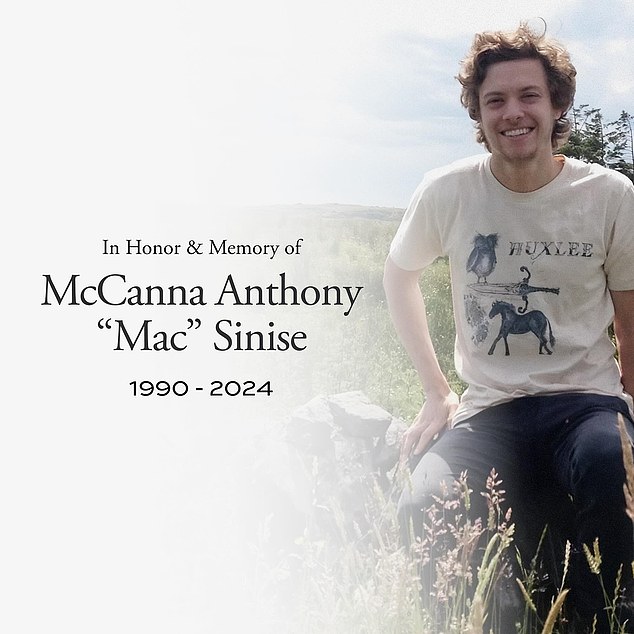Mac Sinise dead at 33: Son of Forrest Gump star Gary Sinise passes away after battle with rare cancer Chordoma – as actor pays heartful tribute: ‘In our hearts forever’
- Mac Sinise died on January 5 this year after years of cancer treatments
- He had worked with his father at the Gary Sinise Foundation
- Mac also supported his father in the Lt. Dan Band on drums
Gary Sinise has shared the heartbreaking news that his son Mac Sinise has passed away at the age of 33.
The 68-year-old Forrest Gump actor revealed that his son died on January 5 after a years-long battle with the rare spine cancer Chordoma in a post shared on the Gary Sinise Foundation website on Tuesday.
Mac had worked with the foundation and supported his father’s Lieutenant Dan Band on drums until repeated spinal surgeries and the worsening of his cancer in recent years forced him to resign.
In a lengthy tribute to his son, Sinise recalled the twin tragedies of 2018, when his wife Moria was diagnosed with stage 3 breast cancer in June, before Mac was diagnosed with a cordoma in August.
While Moira would eventually go into remission after successful surgery to remove the lymph nodes, followed by chemotherapy and radiation, her son was not so lucky.
Gary Sinise has shared the heartbreaking news that his son Mac Sinise passed away on January 5 at the age of 33

Mac Sinise battled a rare bout of spinal cancer in recent years, but he continued to work for his father’s foundation until a few months before his death.
